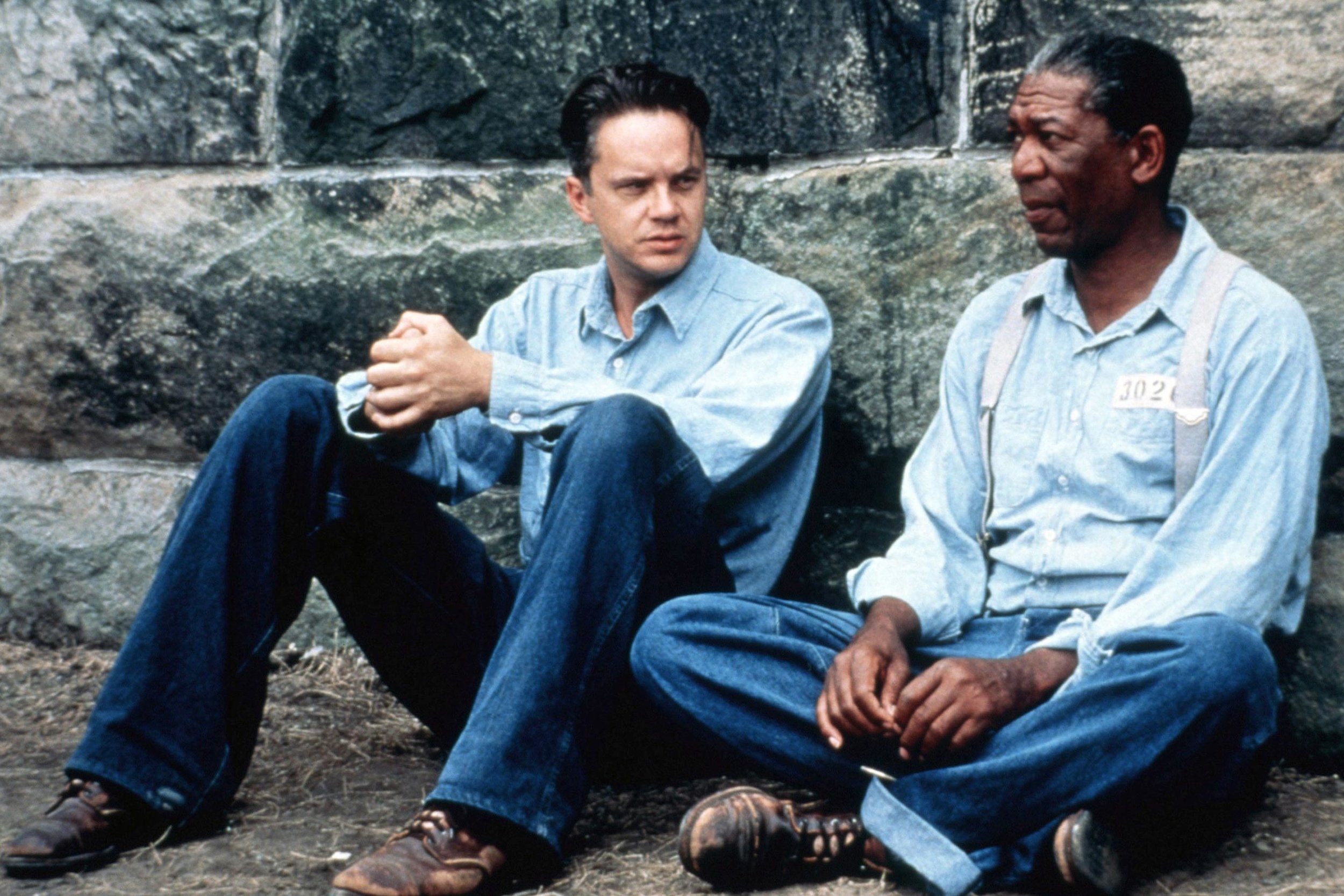At Twenty Five: The Shawshank Redemption
Every month, new contributor to the site, TF Parent, will be bring us a look back at a film turning 25 years old that month. For his first review it’s perennial favourite and topper of best-of film lists everywhere, The Shawshank Redemption. - Editor, Jon Cross
Hope springs eternal.
In 1982, Stephen King published a four-novella book entitled Different Seasons. Each of the four stories was tied to a season of the year, and the first story in the book, “Rita Hayworth and Shawshank Redemption,” was tagged with that phrase - hope springs eternal.
We’ve presumably all seen The Shawshank Redemption. The majority of people I’ve spoken to list the film adaptation of King’s novella among their all-time favorites - which, for a 1994 film, was fairly unusual. King adaptations, with the notable exception of Stand By Me (which was also based on a story from Different Seasons), were notoriously poor in comparison to the source material. Even the movies we liked paled in comparison to King’s storytelling.
Twenty-five years on, we’re seeing a resurgence of King films with another new adaptation announced, seemingly, every few months. The quality has improved in many cases - It, for example, better captures the vibe of the novel than the 1990 TV movie, even if we all miss Tim Curry as Pennywise - but the struggle to capture the genius of King’s books is still evident. Pet Semetery nailed the feeling of dread, but totally fumbled the story, in my humble opinion.
So, in the middle of this Stephen King renaissance, why is Shawshank still at the top of everyone’s list?
It performed slowly at the box office and took no Oscars but, a quarter century later, it is considered by both critics and average joes alike to be in the upper pantheon of film.
From an objective stance, the movie looks like Oscar-bait - a portrayal of the struggle of the Individual against the establishment, filled with great sound-bite dialogue (“Get busy living or get busy dying,” Andy says softly to Red, with the pursed lips and downcast eyes of a man fighting tears).
Let’s face it - this is a schmaltzy Cool Hand Luke.
But it works. It resonates.
Functionally, I think it’s because Stephen King understands humans better than any writer alive and Frank Darabont understands Stephen King better than other directors.
Darabont, of course, proved that by following Shawshank up with The Green Mile and The Mist, both of which were stellar films based on stellar King stories. Darabont tackles King material with an eye for the nuances that make King’s stories so amazing. Darabont knows how to capture the characters and let the story happen to them, instead of forcing a story onto characters that the audience doesn’t care about - the failure of many King adaptations.
As we speak of characters, we need to mention the actors embodying them. Tim Robbins and Morgan Freeman could have easily launched into scene-chweing overacting, which could have launched this into campy territory very quickly but, instead, they both delivered subtle, thoughtful, almost gentle performances. Every actor in the movie did exactly what was needed of them - no scene-stealing, no bravura, but brilliant performances across the board.
In a more overarching fashion, this movie is about things we all can relate to - the struggle to succeed without compromising yourself, the struggle to stay relevant in the day-to-day grind of mediocrity, the importance of having some good friends and, of course, Rita Hayworth.
I’ve always felt part of a lost generation - so lost, in fact, that we don’t even have a generation. We’re too old to be Millennials, and a little too young to be Generation X. We grew up listless, directionless and nihilistic. We didn’t trust teachers, didn’t listen to parents, and didn’t care about what anyone thought. The messages of The Shawshank Redemption by all rights should be lost on us But we’re the ones who have lifted this film to it’s tier in the upper echelons. We seem to be the group that this movie most resonates with. The average 40-year-old, in my personal experience, has a visceral reaction when this movie is even mentioned.
Hell, the scenes about Brooks and his parole, and the scene of Andy arranging to get beers for all of the crew that worked tarring the roof - I got choked up, and not only am I a miserable, cynical 40-year-old, but I’ve seen this damn movie before. Like Forrest Gump, it gets me every time.
And I think maybe it’s just that - that we are fairly misanthropic, especially here in 2019, where everything seems to be on the brink of disaster. We’re constantly in uncharted territory, and maybe the familiarity, the universality, of the story of Shawshank is comforting. The fact that it was masterfully executed allows us to fully disappear into that ancient story of the Man against the Monolith. It lets us be melancholic with the characters as they cope with the passage of time, heartbroken with them, outraged with them. And it sends us a message that flickers in the deepening dark of our modern times:
Hope springs eternal.
10 / 10. But you knew that already.
Check out our exclusive interviews with William Sadler and Mark Rolston, actors in The Shawshank Redemption.









